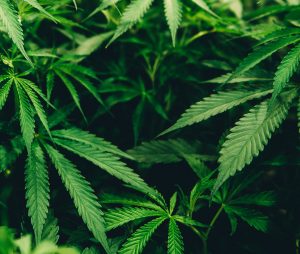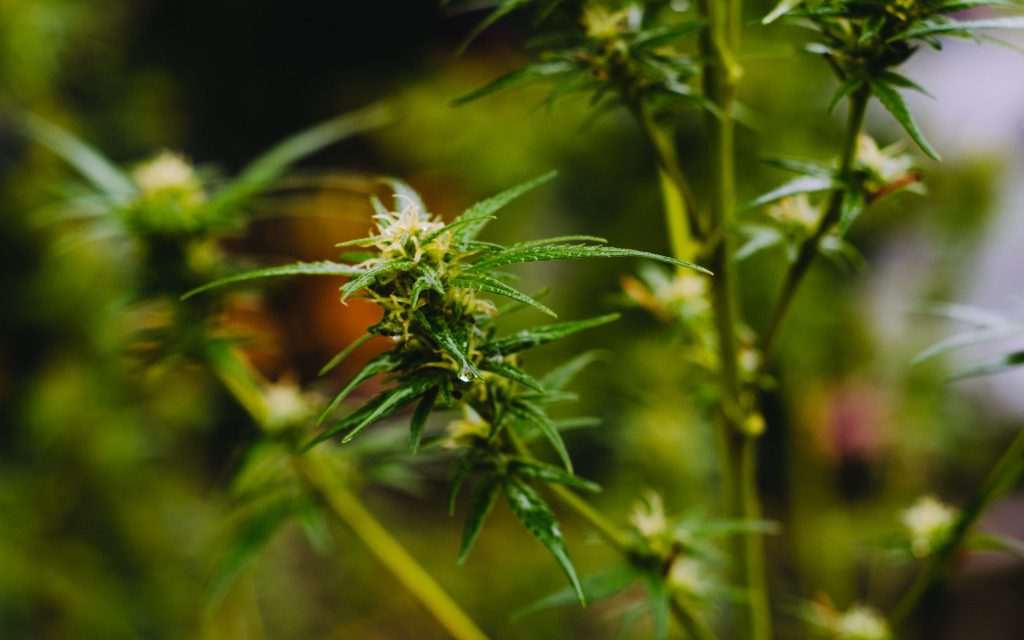Non-intoxicating cannabis compound CBD may be a novel remedy for epileptic seizures.

Cannabidiol (CBD) is one of the main active compounds in cannabis. It may help alleviate seizures by:
- Interacting with receptors. CBD interacts with several nervous system receptors that may have antiepileptic effects.
- Interacting with ion channels. CBD blocks or activates specific ion channels – cell proteins whose dysfunction is involved in epilepsy.
Overview
Cannabidiol (CBD) is one of over 60 cannabinoids found in the Cannabis sativa (marijuana) plant. These compounds are responsible for the health benefits of cannabis, with CBD being the second-most abundant cannabinoid after tetrahydrocannabinol (THC).
Unlike THC, CBD does not make you high, allowing people to reap the benefits of marijuana without any of the intoxication. Because of this, CBD is increasingly being used as a supplement for a variety of health issues, such as anxiety, arthritis, insomnia, Alzheimer’s, and schizophrenia.
In addition, CBD is popular for difficult-to-treat conditions such as chronic pain caused by multiple sclerosis and treatment-resistant epilepsy. In fact, CBD is such a promising seizure remedy that many American states where marijuana is illegal have recently created special legislation allowing for the use of CBD and CBD-rich cannabis for epilepsy.

How CBD Might Help With Seizures
CBD research is still relatively new, and researchers are not fully sure how it relieves seizures. However, they suggest two major mechanisms: 1
Ion channel activation/blockade
Researchers believe that CBD is either an agonist (activator) or antagonist (blocker) of several types of ion channels – special proteins in cells that play an important role in cell function, and nervous system health in particular. For example, it seems to block -type voltage gated calcium channels (VGCC), which are known to be blocked by standard anti-seizure drugs such as zonisamide.
Interacting with nervous system receptors
Many of CBD’s beneficial effects – including reduction of inflammation and pain – are believed to result from its interaction with nervous system receptors. Researchers suggest that some of these receptors can have anticonvulsant (seizure-relieving) effects:
- CBD activates 5-HT (serotinin) receptor
- CBD blocks the GPR55 receptor
- CBD modulates adenosine receptors
In addition, it’s important to note that THC (the main psychoactive cannabinoid in cannabis) also has anti-seizure properties.
CBD Uses & Benefits for Seizures
Similar to whole cannabis, CBD is an increasingly popular remedy for seizures and epilepsy in both children and adults, particularly in cases that are resistant to conventional medicine (refractory epilepsy).
Clinical studies confirm that CBD can significantly reduce the number seizures, and in some cases stop them completely. There is a particularly substantial amount of evidence for CBD’s efficacy in treatment-resistant epilepsy (TRE) disorders such as Dravet Syndrome (DS), Lennox-Gastaut Syndrome (LGS), and Doose Syndrome.
As a 2017 review of virtually all studies on the use of CBD and CBD-rich cannabis for epilepsy concluded, “After millennia of cannabis use for epilepsy, we are beginning to collect sound scientific evidence suggesting that CBD is effective in reducing convulsive seizures in DS and drop seizures in LGS. Open-label experiences with CBD support efficacy in a broader range of TRE, including those associated with TSC, FIRES, focal epilepsy, and other syndromes.” 2
Having said that, we should note that the high CBD dosages used for seizures are likely to cause side effects such as sleepiness, fatigue, and diarrhea.
https://www.youtube.com/watch?v=WNw8jI-Cn28
Research
Human Research
Clinical studies of isolated CBD and CBD-rich cannabis oil report significant reduction of seizures in children and adults with epilepsy, and in some cases complete disappearance of seizures. These results are especially promising because CBD seems to work for patients whose epilepsy is resistant to standard therapy. However, side effects including fatigue, sleepiness, and diarrhea were also common because of high dosages.
CBD (Epidiolex, 20 mg/kg body weight) appears to reduce seizures in Dravet syndrome
This randomized, double-blind, placebo-controlled study examined the benefits of CBD in children with Dravet syndrome, a type of treatment-resistant epilepsy. A total of 120 children and young adults were given CBD (20 mg/kg body weight) daily or placebo for 14 weeks. CBD supplementation resulted in a significant reduction of seizures, with 43% of patients seeing a 50% or greater improvement, and 5% of patients becoming seizure-free. However, some children experienced side effects such as diarrhea, vomiting, fatigue, and sleepiness.
- The researchers concluded that “Among patients with the Dravet syndrome, cannabidiol resulted in a greater reduction in convulsive-seizure frequency than placebo and was associated with higher rates of adverse events.” 3
CBD (Epidiolex, 10 – 20 mg/kg body weight) appears to reduce seizures in Lennox-Gastaut syndrome
Similar to the above study, this randomized, double-blind, placebo-controlled trial examined the benefits of CBD in patients with Lennox-Gastaut syndrome, another type of treatment-resistant epilepsy. A total of 225 children and adults were given CBD (10 or 20 mg/kg body weight) daily or placebo for 14 weeks. Both CBD dosages resulted in a significant decline in seizures (42% for 20 mg and 37.2% for 10 mg). However, 6 patients in the 20 mg and 1 in the 10 mg group stopped taking CBD because of side effects such as sleepiness, diarrhea, and decreased appetite.
- The researchers concluded that “Among children and adults with the Lennox–Gastaut syndrome, the addition of cannabidiol at a dose of 10 mg or 20 mg per kilogram per day to a conventional antiepileptic regimen resulted in greater reductions in the frequency of drop seizures than placebo.” 4
This study examined the benefits of CBD in children and adults with treatment-resistant epilepsy. A total of 214 patients (aged 1-30) were given CBD (Epidiolex, 2-5 mg/kg daily, moved up to 25-50 kg/mg) for 12 weeks. The treatment resulted in a significant reduction (36.5%) of seizure frequency. However, 5 patients withdrew from the study due to side effects.
- The researchers concluded that “Our findings suggest that cannabidiol might reduce seizure frequency and might have an adequate safety profile in children and young adults with highly treatment-resistant epilepsy.” 5
CBD (200-300 mg) appears to improve seizures
In this randomized, double-blind, placebo-controlled study, 15 people with epilepsy were given placebo or CBD (200-300 mg) daily for 135 days. Four out of 8 people given CBD were almost entirely free of seizures throughout the study, and 3 others experienced some improvement.
- The researchers concluded that “The potential use of CBD as an antiepileptic drug and its possible potentiating effect on other antiepileptic drugs are discussed.” 6
CBD-rich oil (1-20 mg/kg body weight) appears to improve treatment-resistant epilepsy in children
In this study, 74 children with treatment-resistant epilepsy were given CBD-rich oil containing CBD and THC at a ratio of 20:1. The dosage ranged from 1-20 mg/kg daily for at least 3 months. The treatment reduced seizure frequency in 89% of the children, with 18% having 75-100% reduction, and 34% having 50-75% reduction. In addition, the children also improved in behavior, alertness, communication, and other measures. However, 5 children withdrew from the study due to worsening of seizures and other side effects such as sleepiness.
- The researchers concluded that “The results of this multicenter study on CBD treatment for intractable epilepsy in a population of children and adolescents are highly promising.” 7
CBD-rich cannabis seems to improve seizures in children with treatment-resistant epilepsy
This parent survey report looked at the effectiveness of CBD-rich cannabis in children with treatment-resistant epilepsy. Out of 19 children, the majority (16) saw a reduction in seizure frequency, with 8 having a greater than 80% improvement, 6 having modest improvement, and 2 children becoming completely free of seizures. In addition, the children also experienced improved alertness, mood, and sleep. In terms of side effects, fatigue and sleepiness were the most common.
- The researchers concluded that “We found that parents of children with severe treatment-resistant epilepsies are using cannabidiol-enriched cannabis to treat their child’s epilepsy.” 8
CBD seems to improve seizures in children with treatment-resistant epilepsy
This parent survey looked at the use of cannabidiol for 53 children with treatment-resistant epilepsy. Most of the children (77%) were given pure CBD. The parents reported a decrease in seizures in 81.3% of the children, with 51% having a moderate or significant decrease, and 16% becoming completely free of seizures. In addition, 42% of the children had mild side effects, such as increased appetite and changes in sleep patterns.
- The researchers concluded that “…medicinal cannabis is useful as an “add on” treatment for their children since it induces a significant reduction in the frequency, duration, and intensity of the seizures.” 9
CBD (2-25 mg/kg body weight) appears to improve seizures in people with Sturge-Weber syndrome
This study evaluated the effects of CBD in people with Sturge-Weber syndrome, a rare condition that involves refractory epilepsy. Five people were given CBD (Epidiolex) daily for up to 48 weeks, with dosages beginning at 2 mg/kg body weight, and increasing up to 25 mg/kg. Three of them reported mild side effects such as sleepiness.
- The researchers concluded that “This study suggests that cannabidiol may be well tolerated as adjunctive medication for seizure management…” 10
Dosage for Seizures
- Most clinical studies of CBD use 200-300 mg or 5-20 mg/kg dosages, which translates to about 300-1200 mg for the average 60 kg person
- These dosages are much higher than those used for most conditions, which typically fall into the 15-50 mg range
- CBD side effects – which include fatigue, sleepiness, diarrhea, and dry mouth – increase with higher dosages
- According to epilepsy researcher and professor Orrin Devinsky, 10 mg/kg seems to be the ideal middle-ground for maintaining effectiveness with manageable side effects
- Most CBD supplements provide 15-30 mg dosages, although some products can go much higher
Available Forms
- CBD oil. The most popular form of CBD, oil tinctures offer ease of use alongside long duration and fast onset.
- CBD capsules/edibles. Although convenient and long-lasting, capsules and edibles have lower efficacy because of low bioavailability.
- CBD vape oil. Vaping CBD provides the fastest relief and strong effects, but has the shortest duration.
- Topical CBD. Topical CBD is applied to the skin as a cream, balm, or ointment, which is an effective option for arthritis and other types of musculoskeletal pain.
- CBD Isolate. 99%+ pure CBD in crystal/powder form.
- Epidiolex. The first prescription CBD drug, Epidiolex is on the verge of being approved in the U.S. for treatment-resistant epilepsy.
Read more: Different forms of CBD
Supplements in Review Recommendation
- CBD oil 200+ mg for seizures.
CBD is a promising option for epilepsy, especially if it is treatment-resistant. Although more high-quality studies comparing CBD to placebo are needed, current research evidence supports the use of CBD for reducing epilepsy seizures. In particular, CBD offers one of the only treatments for patients with treatment-resistant epilepsy.
Clinical research suggests dosages of 200+ mg. Current human research evidence suggests that high doses (200 mg and up) are needed for optimal effect. Some people may be able to go up to 10 mg/kg or even 25 mg/kg, but such high dosages are likely to cause notable side effects.
Leave a Reply